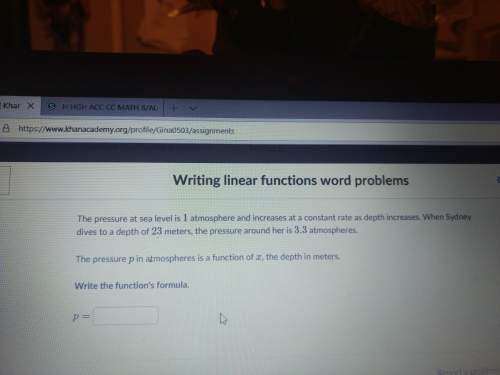PLEAS HELP ASAP
Read the story below, and answer the 3 easy questions!
Memories of a M...

English, 02.09.2021 03:00 sarahelisabeth444
PLEAS HELP ASAP
Read the story below, and answer the 3 easy questions!
Memories of a Memory
Have you ever witnessed something amazing, shocking or surprising and found when describing the event that your story seems to change the more you tell it? Have you ever experienced a time when you couldn't really describe something you saw in a way that others could understand? If so, you may understand why some experts think eyewitness testimony is unreliable as evidence in scientific inquiries and trials. New insights into human memory suggest human memories are really a mixture of many non-factual things.
First, memory is vague. Imagine your room at home or a classroom you see every day. Most likely, you could describe the room very generally. You could name the color of the walls, the floors, the decorations. But the image you describe will never be as specific or detailed as if you were looking at the actual room. Memory tends to save a blurry image of what we have seen rather than specific details. So when a witness tries to identify someone, her brain may recall that the person was tall, but not be able to say how tall when faced with several tall people. There are lots of different kinds of "tall."
Second, memory uses general knowledge to fill in gaps. Our brains reconstruct events and scenes when we remember something. To do this, our brains use other memories and other stories when there are gaps. For example, one day at a library you go to quite frequently, you witness an argument between a library patron and one of the librarians. Later, when telling a friend about the event, your brain may remember a familiar librarian behind the desk rather than the actual participant simply because it is recreating a familiar scene. In effect, your brain is combining memories to help you tell the story.
Third, your memory changes over time. It also changes the more you retell the story. Documented cases have shown eyewitnesses adding detail to testimony that could not have been known at the time of the event. Research has also shown that the more a witness's account is told, the less accurate it is. You may have noticed this yourself. The next time you are retelling a story, notice what you add, or what your brain wants to add, to the account. You may also notice that you drop certain details from previous tellings of the story.
With individual memories all jumbled up with each other, it is hard to believe we ever know anything to be true. Did you really break your mother's favorite vase when you were three? Was that really your father throwing rocks into the river with you when you were seven? The human brain may be quite remarkable indeed. When it comes to memory, however, we may want to start carrying video cameras if we want to record the true picture.
Questions:
1.) Which line from the text best explains the main problem with recalling details of a scene or room?
A.) You could name the color of the walls, the floors, the decorations
B.) Memory tends to save a blurry image of what we have seen rather than specific details
C.) Her brain may recall that the person was tall, but not be able to say how tall when faced with several tall people
D.) In effect, your brain is combining memories to help you tell the story
2.) Which line from the text best explains why the author suggests we start carrying video cameras?
A.) You may understand why some experts think eyewitness testimony is unreliable
B.) The next time you are retelling a story, notice what you add
C.) With individual memories all jumbled up with each other
D.) The human brain may be quite remarkable indeed
3.) Which line from the text best explains the main reason memories change?
A.) Most likely, you could describe the room very generally.
B.) The more a witness's account is told, the less accurate it is
C.) The next time you are retelling a story, notice what you add
D.) You may also notice that you drop certain details

Answers: 1


Another question on English


English, 21.06.2019 19:00
Does anyone read this story in 9th grade "when mr. pirzada came to dine"
Answers: 2

English, 21.06.2019 23:00
Can you correct this paragraph? a football player once had a dream. the dream was about the queen of england. she was on a boat and was fishing. when she tried to put a worm on the fishing hook, her necklace fell into the water. a train conductor named maxwell threw popcorn in the water. the fish ate the popcorn then gave the queen her necklace. the queen said, ” you all for me get my necklace back! ” “you are welcome said the conductor and all the fish.
Answers: 1

English, 22.06.2019 02:40
Match the definition to the word. 1. person or group opposing or hostile to another person or group propaganda 2. arranged in the order in which the events happened spatial 3. based upon reason; a rational approach to something logic 4. a method or system used to accomplish something adversary 5. having to do with space technique 6. coming one after another, in series, or in order chronological 7. the spreading of opinions or beliefs implied 8. suggested, indicated, or understood without express statement sequence
Answers: 1
You know the right answer?
Questions

Mathematics, 08.12.2020 02:00


Chemistry, 08.12.2020 02:00

Mathematics, 08.12.2020 02:00



Social Studies, 08.12.2020 02:00

Arts, 08.12.2020 02:00


Mathematics, 08.12.2020 02:00

English, 08.12.2020 02:00

Biology, 08.12.2020 02:00





Mathematics, 08.12.2020 02:00

English, 08.12.2020 02:00





